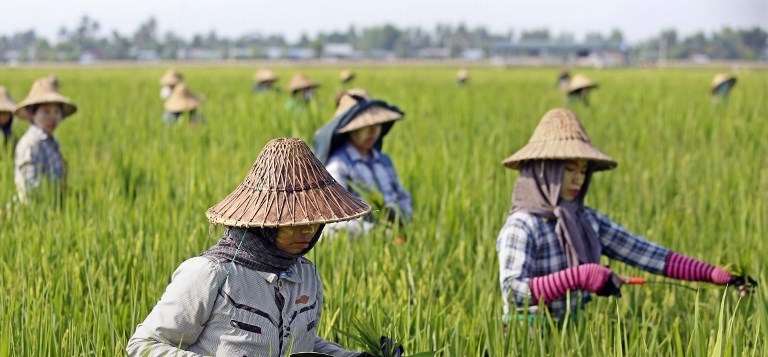Human Rights Watch (HRW) is calling on the Myanmar government to halt the implementation of a controversial land management plan they say could potentially turn millions of farmers in Myanmar into criminal trespassers on their own smallholder farms — an area encompassing about 50 million acres located mostly in ethnic-minority regions.
Despite opposition from more than 300 civil society organizations who signed an open letter to that effect in November, the Myanmar government is set to begin implementing a new land management law today. The law, overseen by the Ministry of Agriculture, would require tenants currently occupying or using land designated as “vacant, fallow, or virgin” to apply for official permits that would allow them to use the land for 30 years.
Today marked the deadline for people to register land most say they have used for generations. The alternative is eviction or a possible two-year jail term for its continued use.
HRW’s Saturday statement specifically cites fears that the new law has the potential to be abused by businesses and private companies eager to swoop in and seize lands designated as “vacant, fallow or virgin” or “unused.”
“The land law should be suspended and the government should ensure there are no arrests or criminal charges for peaceful assembly, protests or criticism,” HRW Asia director Brad Adams is quoted as saying.
“In a country where subsistence farming is the main livelihood, the land law should focus on protecting the rights of small landholders, the poor, and the displaced. Otherwise, powerful interests will swoop in and leave huge numbers of people landless and without any means of survival.”
In Myanmar, subsistence farming remains the primary source of income for the majority of its citizens — some 70 percent of the labor force — and accounts for almost 40 percent of the nation’s GDP, and 30 percent of its total export earnings.
Land disputes remain one of the core issues that will determine Myanmar’s successful transition towards a full democracy, today’s HRW statement argues. Historically, land confiscations and forced evictions have been used by the military and ethnic armies as a key tactic for resource appropriation and development, with small farmers and internally displaced persons bearing the brunt of the consequences.
The new land management law risks exacerbating the problem, the rights group says, by inflaming existing tensions with ethnic minorities as well as triggering unrest and protests amongst farmers growing increasingly discontent with land insecurity and the lack of alternative livelihoods.
Calls to Ministry of Agriculture spokesman Thet Naing Oo went unanswered.





Reader Interactions